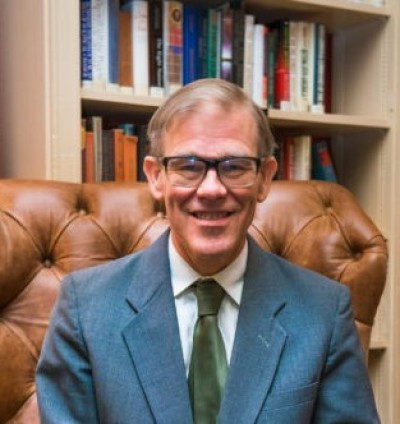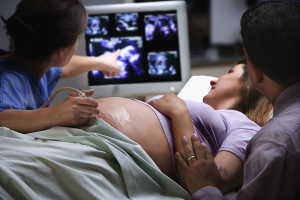Persecution of Christians in Nigeria continues to need attention and action (pt 1)

The decades-long persecution of Christians in Nigeria continues unabated, and if anything, appears to be worsening and just as one-sided as ever. It has been recounted in numerous articles posted by IRD in recent years. Perhaps most disturbing, the government of Nigeria, led by President Muhammed Buhari, has centralized control of the nation’s police, and seems to have a policy of allowing Christians to be murdered by militants of the Muslim Fulani ethnic group with impunity.
Killings, which are ongoing, commonly occur in Nigeria’s “Middle Belt,” between the Muslim north and the Christian south of the country. Significantly, an Anglican bishop in one of the affected areas, the Rt. Rev. Jacob Kwashi of Zonkwa Diocese, remarked last month at a mass funeral that:
“We have never seen an evil government in this country like the one of today … The government is fully in support of the bloodshed in Nigeria. We are being killed just because we are not Muslim."
This theme was echoed in a presentation by Robert Reilly, director of the Westminster Institute on August 28. Reilly interviewed Robert Destro, former Assistant Secretary of State for Democracy, Human Rights, and Labor in the Trump Administration, and currently Professor of Law at the Catholic University of America; and Mark Jacob, a Nigerian barrister, and former Attorney General of Kaduna State in Nigeria, concerning the Nigerian government’s effective support of the slaughter. Although the terrorist group Boko Haram is the best known perpetrator of violence in Nigeria, Reilly’s interview focused primarily on violence committed by Fulani militants.
Reilly noted that the Trump Administration declared Nigeria a Country of Particular Concern (CPC) in late 2020, which indicates that it has “engaged in or tolerated ongoing and egregious violations of religious freedom,” and that the U.S. Commission on International Religious Freedom has warned of a potential Christian genocide in Nigeria.
Jacob provided a broad background to what is going on in Nigeria, talking about “factual events that I have primary knowledge of. I’m not talking from second guess or hearsay.” He said that he “has been part of several mass burials,” and has encouraged victims.
Jacob observed that the atrocities to which he refers were “selected killings of Christians, particularly in the ‘Middle Belt’ region of Nigeria.” While it is being claimed that climate change is the ultimate cause of the conflict, in fact, the killings that have happened from 2014 on are a “genocide perpetrated by a sophisticated armed militia.” He said the Fulani militants are “well organized, they are well trained, they are well armed.” These armed groups “move from village to village, from town to town, from community to community.” It has also been claimed that “the attacks were not religious.” But Jacob said that all the attacks are religious. Attackers come into a community shouting the Islamic slogan “Allahu Akbar!” Churches are destroyed. Mosques are spared, indeed, left “untouched.” Muslim inhabitants are not attacked, only Christians. He said that since 2015, the Nigerian government has “taken sides with the attackers.” To claim that the attacks are not religious is simply a “falsehood,” he said.
Reilly asked who is arming the Fulani. Jacob said that the Nigerian government claims that the arms are coming from Libya. However, Jacob said that “the Islamic world is organized on this matter. Several Islamic countries are believed to be funding and supporting these attacks because the entire program is described as a jihad.” He said that it “is described as an attempt to Islamize the territories.” The attackers “use the Islamic language and slogans.”
Jacob said the current jihad began around 2010 in Plateau State, and got worse by 2015. From there, it has spread to other states in Nigeria. Attacks are on “predominately Christian communities,” which are attacked at night time. Villages are surrounded, people driven from their homes, and then hunted down. Houses are looted, and separate contingents of the Fulani set houses on fire. These attacks are ongoing. Thousands of “internally displaced persons” are in refugee camps, with the government doing “little or nothing” to help them. “Education has been permanently disrupted.”
Another abuse has been to “kidnap children.” In one case, about one hundred children from a Baptist children’s home were held captive. He said that commonly following a kidnapping, “the parents are left alone, to negotiate with the kidnappers.” At least in some cases, the locations of kidnapped children are known. Jacob said that against the Fulani, Christian Nigerians are “totally helpless, you survive only by God’s will.”
Jacob observed that the Nigerian armed forces are “skewed to the Muslims.” Since 2015, when Buhari became President, the government has ensured that the heads of all agencies are Muslims. All appeals to have a mixed military leadership have been ignored. To all appearances, the Nigerian government and armed forces are complicit in the mass murder that is happening. Even if a state government would like to attack terrorists, they would have to act through the federal government to apply coercive force, since both army and police are centralized under the federal government. Military action against terrorists is approved if Muslims are attacked, but not if Christians are attacked, he said.
Reilly asked about a situation a number of years ago when federal troops moved against the terrorist organization Boko Haram. In this situation, a number of school girls were attacked. But Jacob said that the Nigerian president at the time was Goodluck Jonathan, a Christian. However, the President of Nigeria since 2015 has been Mohammed Buhari, who himself was “appointed by Boko Haram … to lead in any negotiations with the Nigerian government before 2015.”
Jacob sees a real problem with known members of Boko Haram being integrated into the Nigerian army on the claim that they have “repented.” This, he said, is clear injustice, not to punish terrorists. He believes it accounts of the “lackadaisical approach of the Nigerian military” to terrorism. Jacob said that the terrorists “have an ideological conviction to kill people in the name of religion. And then you are just brought back and given the uniform with the Nigerian army.”
Reilly asked if “the Nigerian military itself had ever been implicated in these attacks on Christians.” Jacob essentially said that the military’s inaction is evidence of complicity. He cited a recent case of an attack which was just fifteen minutes from the barracks of the Nigerian army. Over 70 people were killed, and many homes destroyed, but no action from the army. Another attack on Christmas Eve 2016 continued from mid-night to dawn, and lasted until everyone was either killed or had fled, and their houses destroyed, while the army and police were only 15 kilometers away. This sort of thing has been seen “over and over.”
Jacob said that when an incident occurs, victims or their advocates are told that the military does not have approval to act against terrorists, and may be told that the attack is simply a “mere internal strife over land” or a “herder/farmer crisis.” This, he said, is a “total falsehood.” There were tribal clashes in the 1970s, but these were resolved without bloodshed. Jacob added that the Fulani attackers today will cut down crops after destroying a village. It is not a situation where a herdsman happens to stray onto a farm, but an attack by well-armed troops on farms, killing the inhabitants, and destroying the farm.
Reilly asked if these attacks have been successful in depopulating parts of Nigeria. Jacob responded “absolutely.” The indigenous population is gone in many areas, and the land occupied by the Fulani. Court orders to restore land cannot be enforced, because of government complicity in the attacks.
Jacob said that governors of states in southern Nigeria came together to prevent Fulani expansion into their areas. This action was condemned, both by the Fulani and the Nigerian government, clearly showing the Nigerian government’s complicity in the murder of Nigerians and confiscation of land. The government’s official policy is to declare privately owned land open for settlement, resulting in the current assault on Christians in Nigeria, which is “ongoing.” The Nigerian government has also designated “thousands of kilometers of land” in Nigeria for grazing (Fulani) expansion, ignoring property rights.
Jacob said that the Nigerian government was “very upset and angry” about the designation of Nigeria as a “country of particular concern.” But he said that no one who has entered Nigeria in the last two years “will fail to see, will fail to touch” the turmoil that is happening there. “No single day passes without a report of twenty, to thirty, to one hundred people being killed … the government is refusing to address criminality … the people bearing arms are getting bolder every day.”
Reilly remarked that one would expect widespread revulsion in Nigeria against what is happening. He asked why the Christians in the south of Nigeria can’t do something to help people in north and central Nigeria. Jacob said that “they can do very little.” The problem is that the southern governors, who have opposed President Buhari’s policy of opening farmlands to Fulani grazing, are in the same political party as the president, and “political correctness” has prevented them from effectively opposing his policies.
The violence in Nigeria’s “middle belt” has now spread to the southeast and the southwest of Nigeria, he said. Although the southern governors have formally come together to state their opposition to his policies, which Jacob said is a “bold step,” nevertheless, their opposition has so far been ineffective. Security is highly centralized in Nigeria, and most politicians “like to play safe,” rather than opposing the President.
Reilly asked “what is the potential within Nigeria for a peaceful, democratic change.” Jacob said that the potential is “very slim, because there is no arm of government that has not been infiltrated with, by the current political style we have, where the President and his men have their hands in everything.” While there is an electoral commission, no one believes that there will be a fair election. Rigged elections have been approved in the past, and “ballot boxes were … taken away by soldiers.”
Reilly asked about “the integrity of the court system.” Jacob said that the courts are intimidated. The current government raided the homes of Supreme Court justices, on the pretense of investigating corruption. The Chief Justice of the Supreme Court was removed, and replaced by someone else. Reilly asked how Jacob operates as a barrister in Nigeria in view of this corruption. Jacob said that he is “not a proud lawyer” because of this corruption. Judges are unwilling to render true justice according to the law, because of intimidation. Thus, the Buhari government could obtain an order designating the Independent People’s Movement of Biafra a terrorist organization, while those groups actually committing mass murders go free.
Jacob said that “the rights of Christians and other religions have been trampled upon with impunity. So much so, that the lives of Christians do not matter.” Any attack on Muslims, however, results in immediate government action. He said that the Nigerian government “specializes in … the manipulation of information.” The government even attempted a “hate speech” bill that would effectively prohibit criticism of the government.
Reilly asked Jacob if the interview he had given puts him personally in danger. Jacob said “absolutely, but I don’t care.” He said that there is a “common saying” now in Nigeria that “if you speak, you die. If you don’t speak, you die.”
Jacob presented a much more dire picture of Nigeria than Americans commonly hold. Comments of Robert Destro, who dealt with Nigeria as an Assistant Secretary of State, along with concluding observations, will be given in a subsequent article.
Originally published at Juicy Ecumenism.



























